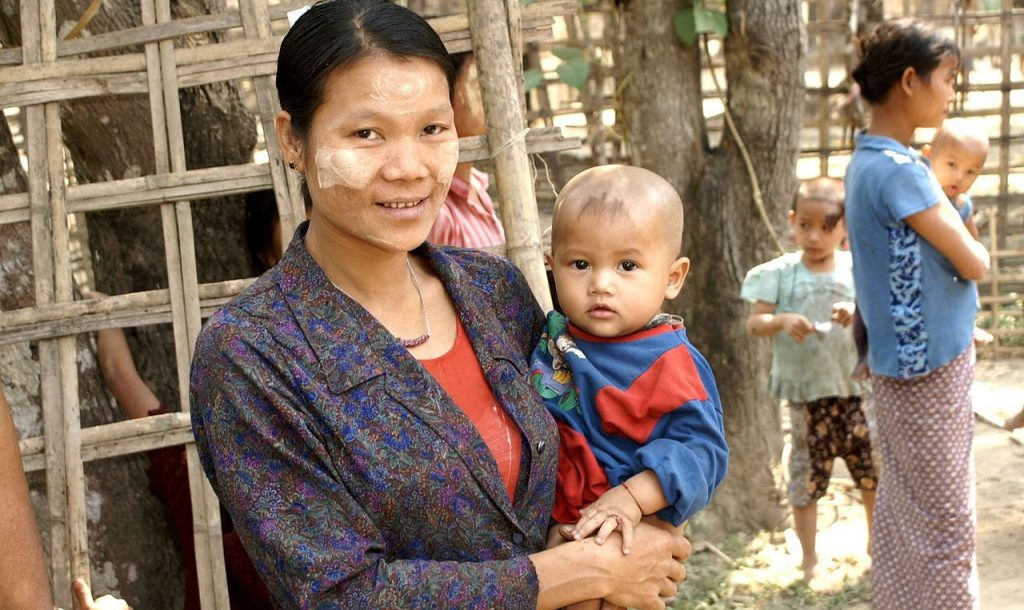Continuing to exclude women from Myanmar’s peace processes will only foster a culture of impunity and the legacies of conflict, writes Susan Hutchinson.
Last month, the United Nations (UN) Security Council held its annual open debate on women, peace, and security (WPS). Eighty representatives spoke, 72 of whom were representatives of member states.
The representative from ASEAN was the only person to even mention Myanmar. He did not mention the instability still wracking the country, nor the situation regarding women’s participation in the national peace processes. He merely named Myanmar as a member of ASEAN.
The WPS agenda is based on eight UN Security Council Resolutions (UNSCR). The first of those resolutions, UNSCR 1325, which passed on 31 October 2000, acknowledged that men and women experience conflict differently. It required women’s protection from the effects of violence (particularly sexual violence), and their participation in the prevention, mitigation, resolution and recovery from conflict. Since then, there has been a range of resolutions bringing the WPS agenda to specific areas of interest to the Security Council including security sector reform and most recently, counter-terrorism.
Australia has a whole-of-government policy on the advancement of the WPS agenda. Indonesia and the Philippines also have National Action Plans on WPS. But in Myanmar, there is an almost complete lack of knowledge by parliamentarians of UNSCR 1325, including with those who are in the parliament’s two peace committees.
National peace processes have excluded women. In the principal peace process, each of the 11 government negotiators were men, and with a few notable exceptions, the vast majority of negotiators from armed groups are men too. When women’s groups advocated for participation in the peace process, they were told: “gender issues need to wait until after the ceasefire has been signed.” But those issues remain unaddressed, and there is a culture of impunity for sexual and gender-based violence, fostered by the legacy of war.
A key recurring theme in the WPS resolutions is ending impunity for sexual violence. UNSCR 1325 emphasised, “the responsibility of all States to put an end to impunity and to prosecute those responsible for genocide, crimes against humanity, and war crimes including those relating to sexual and other violence against women and girls”. UNSCR 2106 “affirms that sexual violence… can significantly exacerbate and prolong situations of armed conflict and may impede the restoration of international peace and security.” It also states that serious sexual violence in armed conflicts constitutes war crimes. Most recently, UNSCR 2242 reiterated the need for the “implementation of relevant obligations under international humanitarian law and international human rights law.”
Sexual violence has been omnipresent throughout the internal conflicts in Myanmar. When sexual violence is committed as part of an armed conflict, it is a war crime under the Geneva Conventions, their Additional Protocols and the Rome Statute of the International Criminal Court.
The Women’s League of Burma has reported the Burmese Army using sexual violence in a strategy that has political and economic dimensions, against particular ethnic groups. When sexual violence is perpetrated as part of a widespread or systematic attack directed against any civilian population, it is a crime against humanity.
Furthermore, there is now new evidence of a genocide of the Rohingya. While the government of Myanmar does not officially recognise the Rohingya as one of the 135 minority groups in the country; that does not deny the reality of their distinct minority ethnic status. The Lowenstein Clinic at Yale Law School has analysed a range of reports and found that there is “strong evidence” that genocide is being carried out in Myanmar with the intent to destroy the Rohingya. Their 65-page legal analysis called on the UN Human Rights Council to urgently establish a Commission of Inquiry into the human rights situation in Rakhine state.
Meanwhile, contrary to like-minded governments such as the United Kingdom and the Netherlands, the Australian government has called on the UN Human Rights Council to downgrade its considerations of the situation in Myanmar.
While falling short of discussions of genocide, the UN Special Representative on Sexual Violence in Conflict Zainab Hawa Bangura has expressed grave concerns about reports of rape and sexual assault of women and girls. “These are not isolated incidents but are part of a wider pattern of ethnically motivated violence that my office has tracked over the past several years,” Mrs Bangura said. “It is critical to end impunity for sexual violence, and I would remind the relevant authorities that human rights must be respected even in the context of counter-insurgency operations.”
At the open debate, we were told that “the shortcomings in the implementation of the women and peace and security framework are due not to a lack of words, but to a lack of action.” Australia and other countries in the region need to step up to the plate; we need to institutionalise our support for women’s participation in the peace processes, hold the government to account for the Nationwide Ceasefire Agreement, exclude perpetrators of sexual violence from international military training and education programs, support the investigation and prosecution of sexual violence, and call for the Myanmar Peace Centre to make a plan on the involvement of women in ongoing peace processes.
Susan Hutchinson is a PhD scholar at the ANU Coral Bell School of Asia Pacific Affairs.
 Facebook
Facebook  Twitter
Twitter  Soundcloud
Soundcloud  Youtube
Youtube  Rss
Rss 